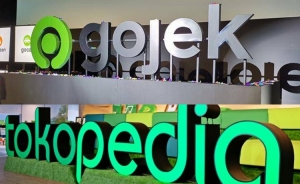Asia Banking Research
Hong Kong faces rising fraud and money laundering
Hong Kong's status as a global financial center and lack of capital controls have long exposed it to certain financial crime risks. In 2020, the former British colony faced an unusual convergence of a recession, political tension and a once-in-a-century pandemic that upended society. Under that tough scenario, Hongkongers were scammed out of a record HK$8.33 billion, of which authorities managed to recuperate about HK$3 billion.
Digibanking key to Gojek-Tokopedia deal
Gojek and Tokopedia are Indonesia's two most valuable startups and preeminent tech firms. Merging the two unicorns, with their mostly complementary services, makes a lot more sense that combining Gojek with its arch-rival Grab. While Grab-Gojek talks dragged on for months, Gojek and Tokopedia will not waste any time. They do not want to fall farther behind high-flying Sea Group, which is outperforming the Indonesian companies on their home turf.
Will AirAsia's super app gambit take flight?
Once upon a time, super apps began as e-commerce platforms or free messaging services. They tapped the network effect to build giant user bases. Because their overhead was low, they could afford to be patient about monetization. Transportation companies do not have the same luxury, especially airlines reeling from the pandemic's effect on air travel. Yet Malaysia-based AirAsia is doubling down on its super app strategy first announced last year. In March, AirAsia will expand its food delivery service airasia food from Malaysia to Singapore.
Asia's super apps will aim to cash in on fintech in 2021
Since the advent of the internet, technology startups have disrupted one industry after another. It was only a matter of time before they set their sights on financial services.
As it turns out, banking is harder to disrupt than retail, transportation, entertainment or almost anything else. The reason is simple: Trust is paramount in banking and takes time to build, while most digital banks have yet to develop compelling value propositions.
A few of Asia's platform companies have defied this conventional wisdom. The most notable is WeChat, the Tencent-owned app that bundles messaging, digibanking, e-commerce and entertainment under the same umbrella. WeChat was not the first platform company to thrive as a fintech - Alipay was - but it was the first to harness messaging's network effect for that purpose.
Can P2P lending thrive in Indonesia?
P2P lending is one of the fastest growing fintech segments in Indonesia. Demand for credit in Southeast Asia's largest economy is strong while its availability to most Indonesians through the traditional banking system is limited. Indonesia has tens of millions of people who are either underbanked or unbanked. Either way, they cannot easily get a bank loan. P2P platforms offer a convenient alternative. As of October 2020, Indonesia's online lenders had disbursed Rp 56.16 trillion in new loans, up 24% year-on-year, while the NPL ratio was 7.58%, according to data compiled by the country's Financial Services Authority.
Hong Kong's virtual banks have their work cut out for them
Two years ago, Hong Kong made fintech history in Asia as the region's first major economy to greenlight digital banks. As of the end of 2020, all eight of the banks were finally live. Political and covid-related disruptions had delayed their launch. Judging by the digibanks' marketing literature, they are poised to redefine banking in Hong Kong as we know it. The reality is more nuanced.
Why did NAB buy out 86 400?
Barely a month after Xinja's abrupt demise, another Australian neobank is exiting the market. This time though, the said bank is being bought out, not folding like an accordion. It would seem that National Australia Bank (NAB) made 86 400 an offer the neobank could not refuse to the tune of AU$220 million. Shareholders cannot complain. Australia's third-largest lender had already purchased an 18.3% stake during 86 400's Series B fundraising round and says it is paying a premium to the price investors had paid when they invested in the neobank.
Rakuten launches Taiwan's first virtual bank
Taiwan finally has an operational digital bank. Rakuten International Commercial Bank (RICB), backed by the Japanese e-commerce giant, recently became the first of three digibanks approved by Taiwan's Financial Supervisory Commission (FSC) to go live. RICB will initially offer deposits, fund transfer, small loan and debit card services and later expand into mortgages and corporate loans. Rakuten has had an internet bank in Japan (Rakuten Bank) for more than a decade.
Kakao Bank set for a blockbuster year
Digital banking is a perilous pursuit. Just look at Xinja's sudden collapse or Monzo teetering on the brink. But that has not stopped cash-flush platform companies from trying to ride the digibanking wave to a blockbuster exit. So far, the results are mixed. One of the success stories is Korea's Kakao Bank, which borrowed a page out of WeChat's book and turned a ubiquitous messaging app into a money-making digibank. Kakao Bank is everything most digital banks are not: focused, profitable, and probably sustainable.
Sea doesn't need to be a super app to thrive
Platform companies counting on digibanking to lift their fortunes now routinely refer to themselves as "super apps" in the vein of China's WeChat. The two most prominent of them are Grab and Gojek, Southeast Asia's two most valuable startups. But being super and profitable are not one and the same. Under pressure from investors to reduce their cash burn and produce a viable exit strategy, both companies have sought a game-changing merger that could help them establish market dominance in digital banking. The M&A activity is accelerating pace as Grab and Gojek lose ground to Sea Group in Indonesia, Southeast Asia's largest economy.
More...
Will Gojek merge with Tokopedia?
Rumors of an impending Grab-Gojek merger are looking more like smoke and mirrors by the day. After all, combine two similar questionable business models and and what do you get? Here is what you do not get: a company capable of slowing Sea Group's momentum in Indonesia. With gaming and e-commerce in the same ecosystem, Sea has stickiness that Gojek and Grab lack. With that in mind, perhaps Gojek could merge with a company able to complement its core services of ride hailing, food delivery and payments. One possibility is Indonesian e-commerce giant Tokopedia.
Grab's fintech business gets a US$300 million shot in the arm
Grab is going all in on digital banking. In the period of less than a month, Southeast Asia's most valuable unicorn has won a Singapore digital bank license and raised US$300 million in a funding round led by South Korea's Hanhwa Asset Management. That was the first external funding for its fintech arm. Other participating investors included long-time Grab backers GGV Capital and K3 Ventures as well as eBay founder Pierre Omidyar's Flourish Ventures.
Malaysia moves ahead on digital banks
Malaysia's digital banking race will be the one to watch now that Singapore's has finally ended. On January 1, Bank Negara Malaysia (BNM) formally invited applications for digital banking licenses. The deadline for submission will be June 30 and BNM will announce up to five winners by the first quarter of 2022. Compared to Singapore's, this should be more of a wide open race. Fewer tech giants will be in the running, although Grab will likely throw its hat into the ring.
The Philippines must act swiftly to implement tougher anti-money laundering (AML) legislation or it will likely be placed on the Financial Action Task Force's (FATF) gray list alongside failed states such as Syria, Yemen and Zimbabwe. Countries on the gray list, which is updated annually in February, are identified as having strategic deficiencies in their anti-money laundering /counterterrorism financing (CFT) regime that pose a risk to the global financial system. Enhanced compliance procedures required for transactions with financial institutions located in gray-list countries could make it harder for the Philippines' many migrant workers to remit money home and reduce the country's attractiveness to investors.














